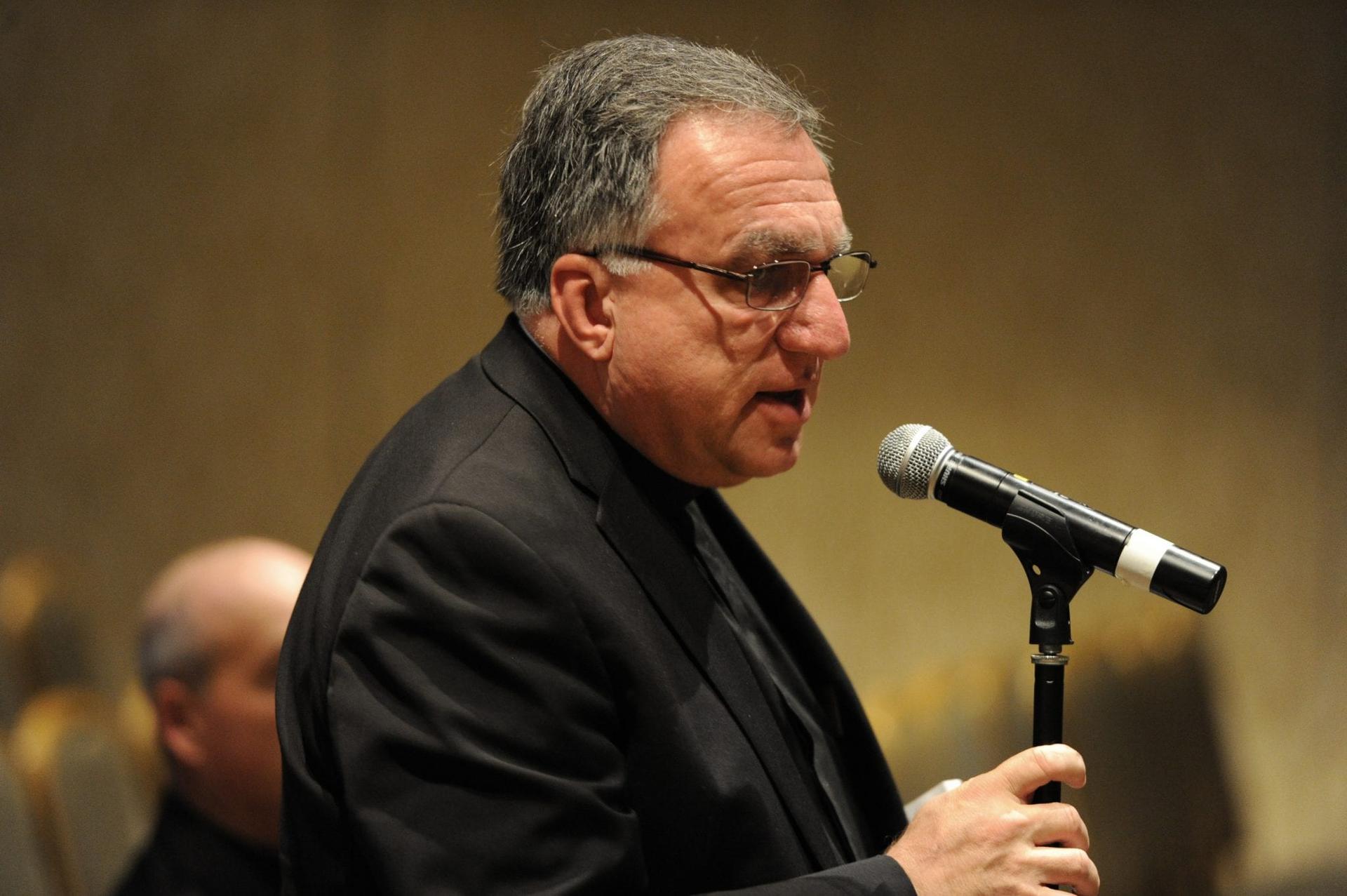ROME — Despite a frenzy in the conservative Catholic blogosphere, a high-profile priest who volunteers as an English-language assistant to the Vatican press office says he’s not planning to take legal action against a Canadian blogger who had criticized him, and considers the matter closed.
The Rev. Thomas Rosica, also a Canadian, said Wednesday he never planned to sue the blogger, and also insisted that he’s not a “high-ranking Vatican official” and hence there was never any prospect of the Vatican taking action.
On Feb. 17, Rosica sent David Domet, a musician who runs a blog called “Vox Cantoris,” a letter through the Toronto-based law firm Fogler, Rubinoff demanding the removal of nine statements that Domet had posted about Rosica. The letter said the statements were “false and defamatory for suggesting that the priest is dishonest, untrustworthy, and willing to act unethically to further his own agenda.”
When Domet posted the letter, it generated a mini-tempest among some Catholic commentators, often based on the impression that the Vatican was cracking down on conservative voices.
On Wednesday, Rosica released a statement saying he had only responded “as an individual and in no institutional capacity to the Vatican or to my place of work, to the continuous false, [and] slanderous statements of the blogger.”
“It was never my intention to sue, but rather to issue a letter to ‘cease and desist’ the frivolous calumny,” the statement said.
Addressing his ties with the Vatican, the release clarified that Rosica “is not a high-ranking Vatican official nor a member of the hierarchy of the Church as erroneously claimed in several recent blogs.”
Rosica is the CEO of the Toronto-based Salt and Light Catholic Media Foundation and Television Network. Domet has repeatedly singled out Rosica and his network for criticism, referring to it in his blog posts as “Canada’s Pepper + Darkness Catholic Channel of no Hope.”
Through Vox Cantoris, Domet also has questioned the legitimacy of Francis’ papacy and described last October’s Extraordinary Synod of Bishops on the Family as a “New-age laity psycho-babble.”
In the wake of the synod, Domet accused Rosica, who helped the Vatican’s press office as a spokesman and translator for English- and French-speaking journalists, of “manipulating” the synod and the press coverage.
Donet wrote that Rosica was lobbying for changing Church teaching through “stealth, by the change of practice under the guise that which is considered pastoral.”
The letter from the law firm, which offered its services for free, also charged that Rosica “is incurring and has incurred damages” as a result of the “false and defamatory statements, including damages to his reputation, work and service to the church.”
The letter claims that in the context of the defamatory comments, some subscribers to Salt+ Light canceled their subscriptions, and that these direct ramifications on the network are “actionable in law.”
Rosica’s lawyers demanded that the blogger “immediately and publicly retract all statements on the blog regarding Fr. Rosica and apologize to him on the blog” or “we will seek instructions to commence an action against you.”
Once that letter became public, American Cardinal Raymond Burke, who formerly served as the head of the Vatican’s high court until Pope Francis appointed him patron of the Order of Malta, joined the discussion to defend the blogger.
Burke has long been considered a hero to Catholicism’s more traditional wing.
Talking to Rorate Caeli, self-defined as the “most-read international blog for traditional Catholics,” Burke said that “unless the blogger has committed a calumny on someone’s good name unjustly, I certainly don’t think that that’s the way we as Catholics should deal with these matters.”
Burke didn’t mention either Rosica or Vox Cantoris by name, but was answering a question about “officials of the Vatican [who] have threatened to sue traditional-minded Catholic bloggers and reporters.”
“I think contact should be made,” Burke said. “I presume that the Catholic blogger is in good faith, and if there’s someone in the hierarchy who is upset with him, the way to deal with it would be first to approach the person directly and try to resolve the matter in that way.”
Quoting the Gospel and St. Paul in his First Letter to the Corinthians, Burke said that disputes among Catholics shouldn’t be taken to civil forums, but rather, resolved among themselves.
On Wednesday, Rosica said that he welcomes mature discussions differences, but that there is a fine line between disagreement and the blatant destruction of someone’s life and reputation.
“Popes Benedict XVI and Francis have taught clearly that the Internet and blogs can be of tremendous service to the building up of the Church and of humanity,” Rosica’s statement said. “They have never taught that blogs and social media should be used, in the name of fidelity, to engender slander, hatred, reviling and destroying.”
Rosica also said that those in the Catholic blogsphere who have contributed to spreading the faith and defending all that is good and beautiful about it and the Church should be congratulated and encouraged.
“Others have chosen to turn the blogosphere into a black hole of vitriol, anger and profound sadness,” he said. “As Catholics, the great privilege and freedom of expression and access to social media also has certain obligations of decency, integrity, honest and charity that reveal who we really are.”
Here is the full text of Rosica’s statement.

















